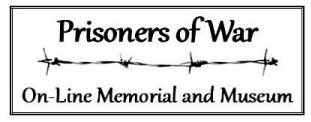Sparrow, J H
Sergeant John Harold (Harry) Sparrow
Information provided by Ian Sparrow
Sgt. John Harold Sparrow (Royal Artillery 272) was my father.
Dad kept a notebook during his time as a prisoner of war. The child’s writing is mine. It seems I was allowed to practice my writing on the blank pages. What sacrilege! The addresses in the middle pages must be of other inmates of the camp. Dad never showed much interest in music with us but strangely I have acquired recorded versions of many of the songs in the notes.
Dad & Jackie Arthur were in the Royal Artillery 272. They were captured in Knightsbridge (Sironica) by Rommel. The location of the Battle of Knightsbridge, which took place in 1942, was ironically named because it was a barren desert crossing. The three-day fight formed part of the Battle of Gazala – fought from May 26 to June 20, 1942 – which was seen as German Field Marshal Erwin Rommel’s (above) greatest triumph. They were held captive in Carpio near Bologna, then transferred by train through the Brenner pass to Lamsdorf Stalag VIIIB. The British officer in chief at the camp was Sherriff. They were freed at the end of the war. I have attached photographs of the camp. Maybe Dad and Jackie are on them.
My cousin Bernard Haugh, the son of my mother’s brother Joe recalls this:
“Your dad told me the war ended with him in a POW. camp over-run by the Russians and alongside the river (Oder?). The Americans were on the other side of the river but the Russians wouldn’t set our lads free until we handed over the Russian POWs on our side. You doubtless know the problem was ‘our’ Russians would end up in Siberia or worse. Harold MacMillan lost sleep for years afterwards.One dark night, your dad said that he and a mate, who must have been Jackie Arthur, slipped out of the loosely-guarded camp and swam across the river to the Americans.
On his way home he ‘liberated’ a bottle of champagne which he and your mum shared on his return to Marion St.Ian’s recollections:
I recall my Dad telling me that the Germans treated the allied prisoners well in the camp. His arm was tidied up and they found him a pair of spectacles to replace his, which were lost or broken in the battle. Shrapnel was removed from his arm when I was 4 or 5 (round about 1950). I remember my Dad telling me that if there were a group of prisoners laughing in the prison courtyard, the one in the centre of the group would be Jackie Arthur.I also remember my Mum telling me that Dad’s mother used to set the meal table for three sons, George, Jimmy and Harry every night, just in case they came home. When dad was listed missing in action Mum had called in to see his parents on her way from work, which I think she did most evenings. She was able to show them a letter written to her, dated after the telegram from the military, so they knew he was safe.
I didn’t talk much with Dad about his war experiences. However, on his 80th birthday we visited the Imperial War Museum at Duxford and Dad was interested in the mock-up of second world war trenches and particularly his ‘artillery’. He was, however, disturbed by the hanger which housed a troop-carrier being loaded with soldiers and left the hall extremely agitated. I talked to my mum about this later. She thought that the flight back after they were released was precarious and uncomfortable and he feared that he might die on the way back to freedom. He never flew again. He did return to Germany with me. He enjoyed it and surprised me by speaking a smattering of social German to the hotel staff.
His pals after the war were Jackie Arthur, Bill Noble and Sammy Chaney or (Chainey). I don’t know when and how they met.
Ian Sparrow
Suggest an improvement to this record


